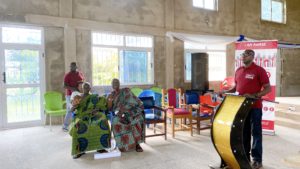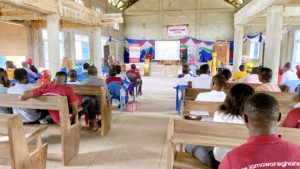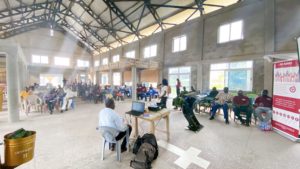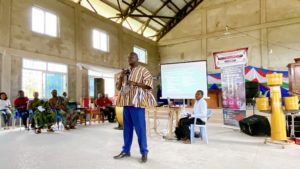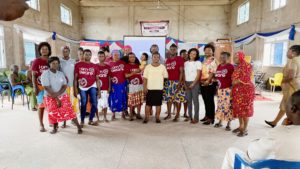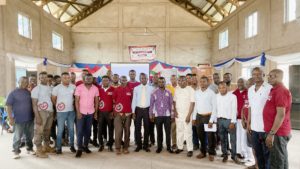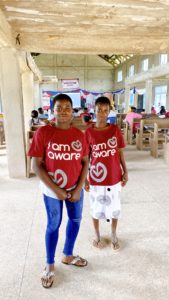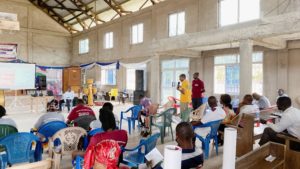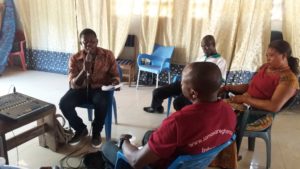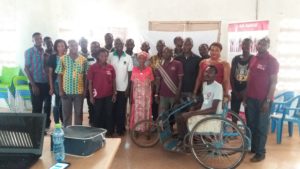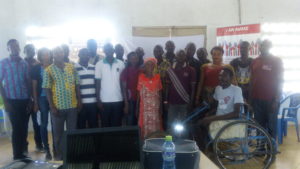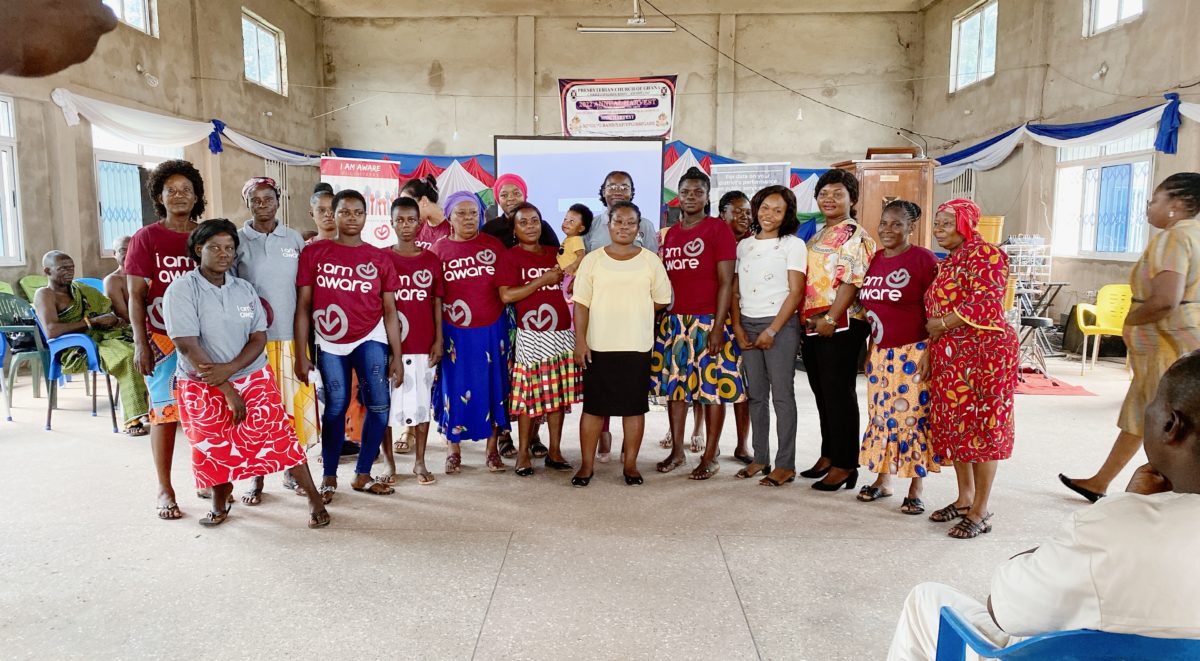
Background
The Ghana Center for Democratic Development (CDD-Ghana) through years of research and advocacy targeted at transparent, accountable and responsive governance identified the lack of user friendly data on the state of public goods and services as a major challenge. The absence of these organized set of data has been one of the major hindrances to social accountability, and, certainly, in tracking the commitments of public servants and policy makers towards the delivery of public goods and services. In line with the commitment to improve the collective governance of public goods and services delivery, the CDD-Ghana applied and secured a grant from the William and Flora Hewlett Foundation in 2011 to support a program towards improving quality public service delivery in Ghana through an informed citizenry advocacy. Building on the achievements made in the first phase, CDD-Ghana received a second grant from the William and Flora Hewlett foundation in November 2013 to implement the project over a 4-year period.
INTRODUCTION OF’ I AM AWARE’ PROJECT
The Ghana Center for Democratic Development (CDD-Ghana) under the auspices of its flagship social accountability project dubbed the “I Am Aware” (IAA) project is conducting workshops on the theme: “Access to data for informed evidence-based advocacy to influence policy-making in Ghana”. This engagement or sensitization programme is intended for select state and non state actors in selected districts across the country to improve citizens’ awareness of and interest in the use of data for development advocacy.
Indeed, participants in these interventions will expose citizens to the data facilities that I AM AWARE has and were trained well on how the data available on the website can improve data use in development advocacy.
Furthermore, the discussions at the sought to explore and examine the state, sources, and availability of key social and human development indicator data in Ghana. The discussions also further explored/identified existing obstacles and challenges to accessing social and human development data. Finally, the workshop provided a platform for the exchange of ideas and experiences about how to improve the collection, processing and dissemination of data for informed evidence-based advocacy to influence policy-making in Ghana.
Going forward, I AM AWARE selects key participants that are state and non state actors whose work speak to public services provision in the districts. This engagement strategy was designed to enhance/optimize the nature of engagements between selected state and non state actors and specific stakeholders in the district in relation to the I AM AWARE project which served as guide for further engagements for the district representatives.
THE PURPOSE OF THE ENGAGEMENT WITH THE DISTRICT STAKEHOLDERS
The purpose of district engagements is to strengthen demand side accountability to ensure efficient utilization of resources and to improve service delivery with the objectives as follows-
- For the Non state Actors- it is to create awareness about the state of service delivery and which areas based on the evidence as your present to them will they wish the assembly to focus attention on.
- And for the Note-State Actors- it is to introduce them to the I AM AWARE DATA platform as resources to enhance their responsiveness in planning for district level intervention and as a source of data.
I AM AWARE intervention focuses on public services provision at a district level to enhance interactions between citizens and their duty bearers, in order to enhance social accountability mechanisms. I AM AWARE believes that with data that speaks to the quality of public services provision at the most basic level of local governance, citizens can be better resourced to engage in meaningful conversations with the duty bearers and hold them accountable.
However, one of the mechanisms that the data can reach citizens and relevant stakeholders is through engagements with all the important stakeholders at the district level. These stakeholders are critical to public services that are provided in the district, which come largely under the ambit of the government of the day.
District level stakeholders are engaged because positive change can be stirred up by having meaningful conversations at that level, with data that speaks to public services such as education, health, water, sanitation, roads infrastructure, security and agriculture. I AM AWARE considers these basic services as important to social and human development of citizens, here in Ghana. The district level stakeholders come represent both state and citizens’ interest and based on the hypothesis of increased accountability between state and citizens based on increased access to socio-economic data; both state and citizens’ groups can engage each other
FOCUSED DISTRICTS
“I Am Aware” focuses on Afigya Kwabre in Ashanti Region, Sene East and Dormaa East districts in Brong Ahafo Region, as part of the IAA project areas across the country. It is clear that, social accountability can be improved in all these districts with data that enhances engagements between duty bearers and their citizens.
Target Audience
PARTICIPANTS AT DISTRICT LEVEL ENGAGEMENT SESSIONS
The Stakeholders at the district level represented the interests of the state and those of citizens. The state groups are focused on implementing existing laws and state policies (especially those regarding public services), citizens are interested in enhancing the quality of services that they receive.
The District state level stakeholders engaged included the following (but are not limited to):
- The coordinating Director
- The Planning Officer
- The Budgeting Officer
- The District Roads Engineer
- The District Education Director
- The District Health Director
- The District Agricultural Services Director
- The District Water Services Engineer
- The District Security Services Commander[1]
In addition, some citizens’ interest groups and stakeholders were among others
- Representatives of Parent- Teacher Associations of Basic Schools
- Representatives of School Management Councils
- Representatives of CSOs/NGOS in any of the sectors that I AM AWARE focuses on
- Citizens’ interest groups – groups of concerned citizens,
- Local Media partner or representative
- Volunteers of I AM AWARE in the districts.
METHODS OF ENGAGEMENTS AT DISTRICT LEVEL
I AM AWARE district level engagements took the structure of town-hall meetings or assembly meetings, where issues of district development are considered. The engagements were at the the district, affording the opportunity for local stakeholders to be present.
After the data presentations, Participants were taken IAA website and emphasized on visualization icon to appreciate how to data from the website by region and district. Participants were also taken through to understand the process of comparing nearby districts on the thematic areas information gathered to find out if there are reasons for high or low performances.
The role of the media is critical in engagements at the district level. I AM AWARE is interested in reaching a wider audience with stories and reactions to its work and it is important that local media are involved in the engagements. The local media institution were invited as the I AM AWARE partner CSO to promote the engagement and spread the word about what I AM AWARE data shows about the districts concern.
Presentations
Power point presentations were used making room for General discussion and suggestions as to how best the IAA intervention inputs has helped to shape the development priority in the target districts. This was done through the I am Aware project data center located at CDD-Ghana offices. The data center developed accessible and user/reader-friendly information on the state of public goods and public service delivery in Ghana and disseminate to citizens and selected duty bearers at district level engagements in selected districts
- Targeted Stakeholder Meetings: These meetings took the form of selected key stakeholder briefings on the state of, and supply of public goods and public service delivery in the district. The meetings had representatives of key public sector service providers, and representatives of the Assembly (DCE, District Coordinating Directors, Presiding Members, and Heads of Sub-committees of the Assembly, etc).
- Engagement forums: the engagement took the form of public fora. The non state actors or citizens included traditional leaders, civil Society organizations, representatives of organized citizen and occupational groups to discuss issues around the delivery of public goods and public services against national standards to stimulate demands for improved public goods and public service delivery in the district.
- Media interventions: both print and electronic Media were used- discussion on general public service delivery in the district and what avenues are available for citizens to use to demand accountability and responsiveness in public service delivery.
ACHIEVEMENTS
- Increased awareness on the part of duty bearers on the state of, and supply of public goods and public service delivery in the district
- Increased the citizen awareness and demand for improved pubic goods and public service delivery in the region and district
- Build a network of community activist as IAA volunteers
- Document commitments to enhance the delivery of public goods and public services
- The engagement platform helped to strengthening partnership between duty bearers and right holders for common good for quality service delivery .
- Disseminated socio-economic data for the purpose of strengthening the demand and supply sides of public official responsiveness through evidence-based policy dialogue and advocacy.
- Ensured Close partnerships with specific local groups such as PTAs, School Management Committees, District Health Task Forces, Transport Unions and CBOs
- Provided the up-to-date empirical information on the state of education, health,
- water, roads, crime rate, agriculture and sanitation to inform planning and resource allocations
- Improved evidence-based advocacy for public goods and service delivery in Ghana by partner organizations (especially media partners).
- Improved evidence based demand for public goods and service delivery by citizens.
- Participants were given copies of research papers-21- citizens reports cards, and report 23 on access for girls and children and children with disabilities to enhance knowledge on the data issues
- Distributed Ghana district League Table 2015 copies, on facts sheets and reports, posters, Banners, and t-shirts of I am aware with wrist bands for in-depth understanding and publicity.
- Enhanced responsiveness of duty bearers to respond to citizens’ demand for public goods and services.
- Helped improve public goods and service delivery through all involving in planning and allocation of resources at all levels
- Etc.
REPORTS
- 2022 (Apr.-Jun.): Activity Report 2022
- 2021 (Jul.-Sep.): Activity Report 2021
- 2020: Activity Report 2020

